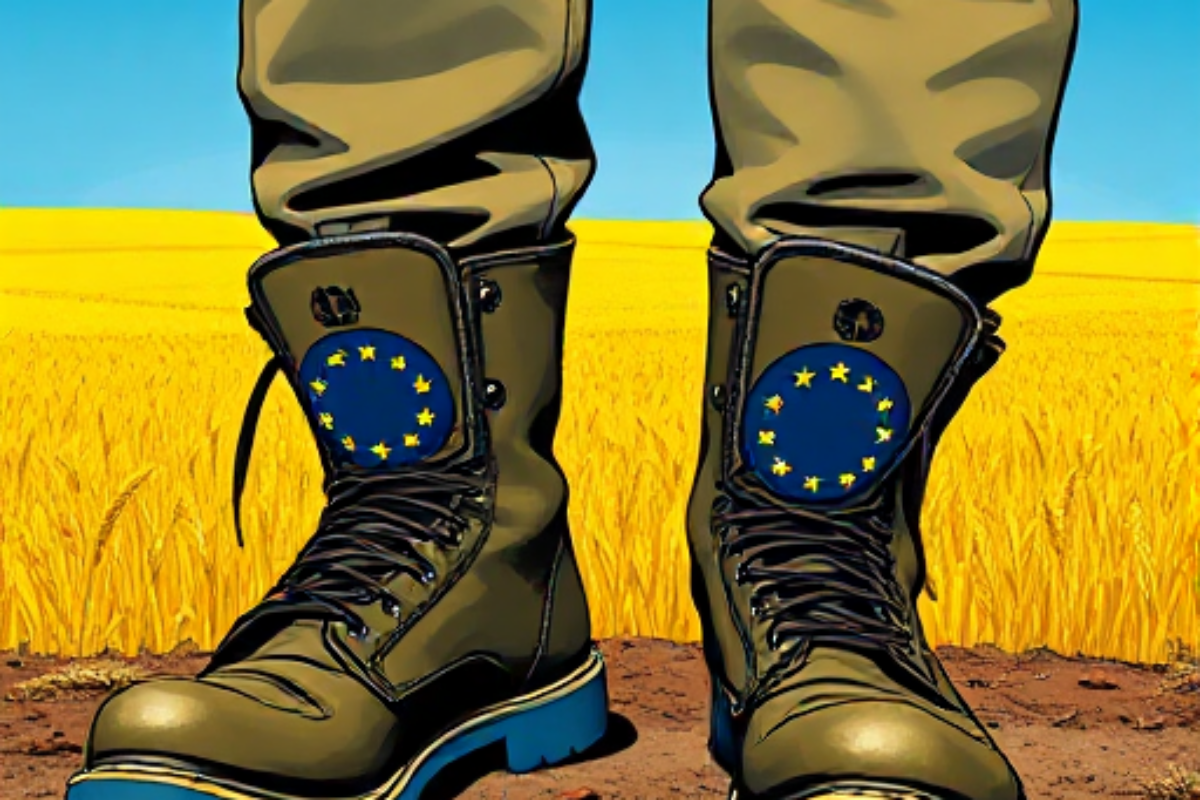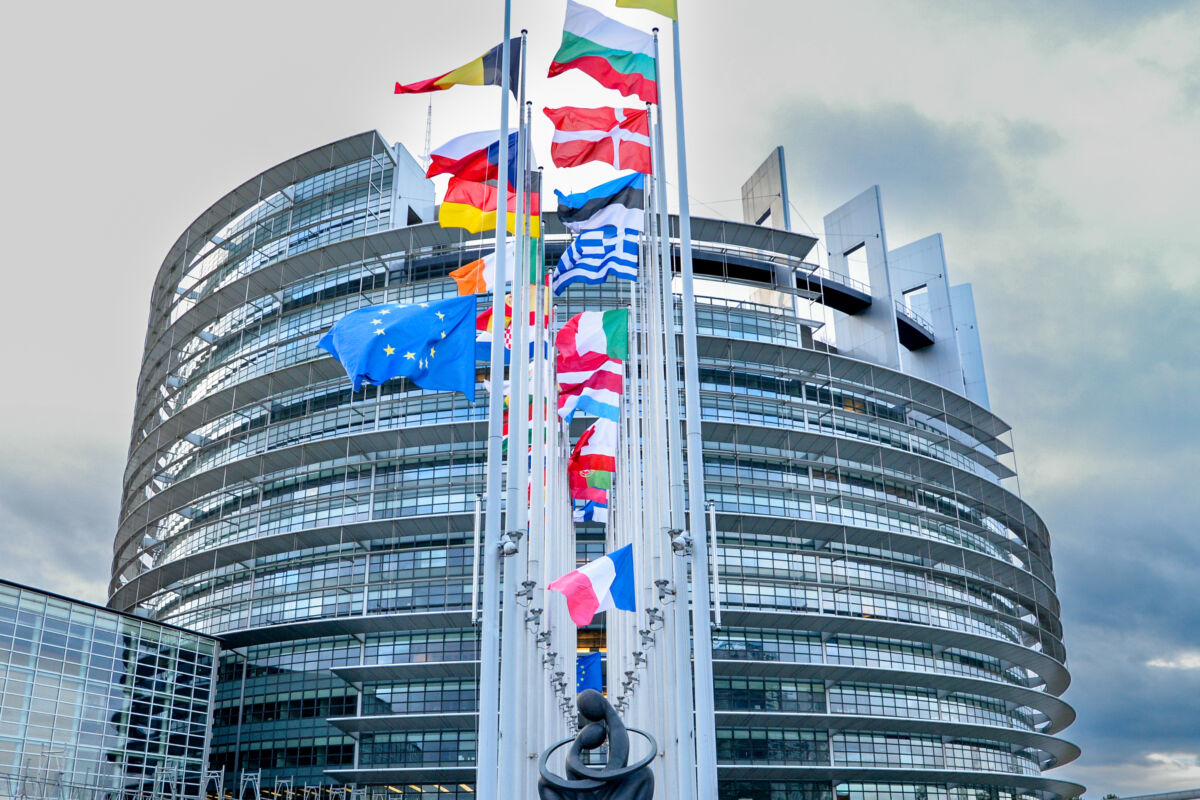An economic depression is looming, on the tails of the pandemic. The IMF sees a massive contraction of the global economy, with the United States and many European countries set to face hard times. Businesses will have to prove their resilience and agility, and governments must find new ways to support the economy, coupling recovery with sustainability. Will companies withstand the depression? Shareholder capitalism may not be able to cope, in particular in its country of origin, the United States. And despite well-known disadvantages, European businesses can rely on a more sustainable approach to capitalism and – with significant support from public authorities – translate this into a competitive advantage. Let us explain.
Shareholder capitalism may not weather the storm
Let us look at how the economy is financed. In the US, stock markets provide the bulk of companies’ capital requirements, up to 75% in the 2002-16 period; in Europe banks have traditionally provided around 80% of the capital, and as a result Europe has far fewer listed companies. The difference is clear: IMF data shows that bank assets stand at 300% of GDP in the euro area, against 85% of GDP in the US; listed equity stands at 68% of GDP in the euro area, against 170% in the US. This has been perceived, with some grounds, as a handicap for European companies. However, things have been gradually changing since the financial crisis, and the ECB recently reported a “medium-term movement” from strong bank dominance towards a more balanced composition, in which different types of non-bank financial intermediaries are becoming increasingly important. This is true in particular for investment and pension funds, the fastest-growing types of non-bank financial intermediaries in the euro area.
As Europe rightly makes a move towards a more balanced and diversified system, it is of utmost importance to recall that policymakers should be reminded of the risks of exchange-mediated finance and remain vigilant that the combined impact of the Banking Union and the European Capital Markets Union does not erode the resilience of Europe’s capitalism. This will be difficult, also since the US seems on its way towards enhanced risk-taking by banks.
In a heavily ‘financialised’ economy such as that of the US, a stock-market listing becomes a conduit through which fund managers, investment bankers, brokers, consultants, lawyers and even financial journalists make their influence felt. Capital markets stand to protect Milton Friedman’s credo: that companies must chase shareholder interests, full stop. Companies are forced to provide financial guidance for the year ahead and report progress on a quarterly basis: any shortfall is not taken lightly, and often translates into disproportionate stock losses, raising the cost of capital. Europe, with far fewer listed companies, is less exposed to the raw power of financial markets.
The shareholder model of capitalism has proven to be such an enemy of sustainable business that even the American Business Roundtable started advocating a change, to affirm “the essential role corporations can play in improving our society when CEOs are truly committed to meeting the needs of all stakeholders”. But this is just the beginning of a change that will take years, if ever, to materialise. As of now, American companies still concentrate on the pursuit of the highest possible return on equity (the sum of dividend payments and rising stock prices). In doing so, they are guided by the assumption that an increase in profits per share will translate into higher share prices (something that holds only in the long run). And incentives are aligned, since 80% of management remuneration is either linked to the profit per share, or directly to the share price. Managing highly complicated companies with thousands of employees is thus reduced to the optimisation of a ratio: profit per share. Managers are blindly led to focus on policies with the lowest risk and greatest impact on the ratio during their years at the helm.
Slaves to the profit-per-share ratio
What are the most popular policies and how do they impact corporate resilience and agility? Share buybacks increase the ratio by lowering the denominator: profit per share goes up, the share price follows and both shareholders and management benefit. Buybacks are quick to arrange and seem risk-free. It now becomes clear how vulnerable many companies have become, which greatly curtails their room for manoeuvre. Companies that have spent enormous amounts on share buybacks, like American Airlines or Boeing, now line up for government aid.
Other policies aim to increase the numerator, by seeking the perpetual pursuit of (preferably double-digit) profit growth. Three policies stand out in this domain. Restructuring programmes, reining in investment, and mergers and acquisitions. All three are harming corporate resilience. Restructuring programmes are widespread and recurrent and are often hardly distinguishable from cost-cutting by workforce reduction: they are presumed to have a direct and unmitigated impact on profit; results are supposed to come in before the end of the manager’s term. There is the illusion that risks can be managed, but shareholders tend to ignore the fact that most of these programmes fail to reach their targets. They destroy economic value because much expertise is lost and important informal relationships, internally and with customers and suppliers, are destroyed. Reining in investment, fuelled by the fact that start-up costs reduce profit, is equally dangerous. Even the unprecedented tax hand-out to American companies has not resulted in a meaningful increase in capital budgets: the IMF last year recalled that despite rising mark-ups, investment has fallen inexorably. This leaves US companies with a hollowed-out asset base at the start of the depression.
And for what concerns M&A, intended to cut costs, to protect margins and to contribute immediately to the profit per share, true integration normally takes years, and partially consummated mergers are hardly conducive to the agility that is now required. On the financial side it is estimated that 80% of mergers fail to increase value.
Are European companies more resilient and agile?
On all these fronts, American companies appear more exposed than European ones, even if many listed European companies have been tempted by the sirens of shareholder capitalism in recent decades. European companies, also thanks to government support (think about the SURE programme recently launched in Europe), hold on to their staff for as long as possible. They are more conservatively financed and by and large lack an anti-investment bias. They have not wasted as much time, energy and money on takeovers. If one adds that American companies tend to be more rigidly linked to the doctrine ‘what gets measured gets done’, which translates into the imposition of KPIs at all levels of organisation, a lack of overall trust and a premium on competition throughout the organisation, it becomes clear that American companies are facing high hurdles to forge coalitions for the greater good as a way to recover from the crisis.
In Europe, fairness and reasonableness are still guiding much of economic life and are enshrined in law in all but three EU27 countries. Proportionality, social responsibility and sustainability, taking the interest of future generations into account, are equally deeply engrained. Most European companies are a working community, where these values contribute to economic success, and not an instrument in the hands of financial markets. So, in principle, European companies should be better positioned to take advantage of the business opportunities any crisis yields: but this will only materialise if EU policymakers remove existing obstacles to the full realisation of EU potential. And continue on the road to a more balanced corporate finance landscape with adequate attention to sustainability, resilience and agility.
This is a treasure that should be preserved during the coming, severe crisis. Rather than playing catchup with American capitalism and falling victim to its flaws, policymakers should do whatever they can to preserve and nurture the diversity of Europe’s enterprise models, which are far better suited to engineer a recovery. After all, preaching that ‘we’re all in this together’ is not enough. One has to practise solidarity and collaboration in order to make it happen.






































